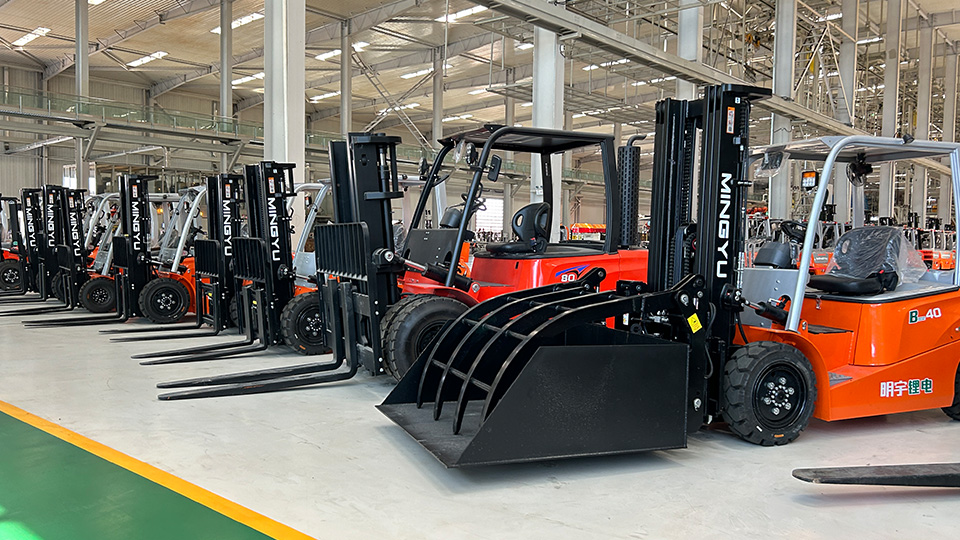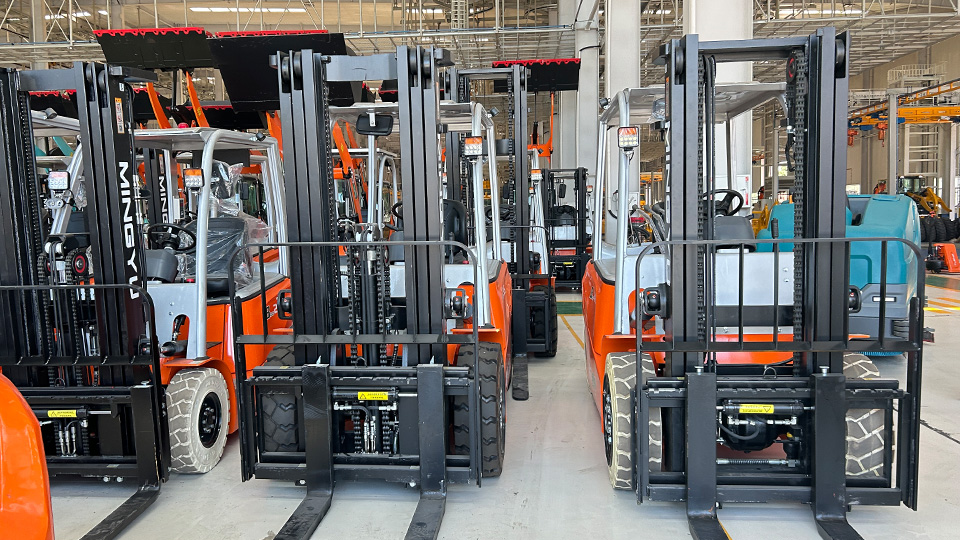
The safe and efficient operation of forklift trucks is fundamental to the productivity and safety of countless industries worldwide. From bustling warehouses and sprawling manufacturing plants to construction sites and port terminals, forklifts are indispensable tools for material handling. To ensure that these powerful machines are operated by competent individuals, regulatory bodies in most countries mandate comprehensive training and certification for forklift operators. A crucial aspect of this regulatory framework, and a frequent point of inquiry for both operators and employers, is: "How long does a forklift truck licence last?"
The answer to this question is not universally uniform and can vary significantly depending on the specific country, the governing regulatory authority, and certain workplace conditions. While the term "licence" is commonly used, it's more accurately referred to as a "certificate of training" or "certification," as it typically signifies completion of a training program rather than a government-issued driving licence in the same vein as a car. This technical article will explore the typical validity periods for forklift certifications across key global regions, delve into the reasons behind these durations, and outline the critical conditions under which recertification or additional training may be required sooner than the standard expiry period.

The Concept of Forklift Certification Validity
Unlike a standard driver's licence which, once obtained, often has a long validity period (e.g., 5, 10, or even lifelong in some places, with periodic renewals for administrative purposes), forklift certification is primarily focused on demonstrating ongoing competency in a dynamic and potentially hazardous work environment. The validity period, therefore, is directly tied to the need for operators to remain current with safety regulations, best practices, and the evolving nature of equipment and workplaces.
The core reasons why forklift certifications have a finite validity period are:
Evolving Regulations and Best Practices: Safety standards and regulations are not static. Regulatory bodies continually update guidelines based on accident data, technological advancements in forklift design, and new insights into workplace safety. Regular recertification ensures operators are aware of and comply with the latest rules.
Skill Degradation and "Bad Habits": Even experienced operators can develop unsafe habits over time, or their skills may degrade if they do not regularly operate certain types of equipment. Refresher training addresses these issues, reinforcing correct procedures.
Changes in Equipment and Workplace Environment: New forklift models, attachments, or significant alterations to the workplace layout (e.g., new racking systems, different traffic patterns) necessitate additional training to ensure operators can adapt safely.
Accident Prevention: Periodic retraining and assessment are proactive measures to reduce the incidence of forklift-related accidents, which can result in serious injuries, fatalities, and substantial financial losses.
Common Validity Periods by Region
While the specifics can vary, a generally accepted industry standard has emerged across many developed nations regarding the duration of forklift certification.
1. United States (OSHA):
In the United States, the Occupational Safety and Health Administration (OSHA) is the primary regulatory body for workplace safety. OSHA's standard 29 CFR 1910.178 (Powered Industrial Trucks) mandates specific training and evaluation requirements for forklift operators.
Validity Period: OSHA requires that forklift operators receive refresher training and an evaluation at least once every three (3) years.
Key takeaway: This means an operator's certification is considered valid for three years from the date of their last successful training and evaluation. Employers are responsible for ensuring their operators maintain current certification.

2. United Kingdom (HSE):
In the UK, the Health and Safety Executive (HSE) provides guidance on forklift training, primarily through its Approved Code of Practice (ACOP) L117, "Rider-operated lift trucks: Operator training and safe use."
Validity Period: The HSE's ACOP L117 does not technically specify an expiry date for a forklift "licence" or certificate. However, it strongly recommends that operators undergo refresher training and re-assessment every three (3) to five (5) years.
Key takeaway: While there isn't a hard "expiry date" on the certificate itself, industry best practice and employer due diligence effectively treat the certification as valid for around three years, requiring periodic refreshers to ensure ongoing competence. Employers are legally obligated to ensure their operators remain competent, and regular refresher training is the primary means to achieve this.
3. Canada (WorkSafeBC, Provincial Regulations):
Canada's occupational health and safety regulations are primarily governed at the provincial and territorial level. For example, WorkSafeBC in British Columbia, and similar bodies in other provinces, outline specific requirements.
Validity Period: In many Canadian provinces, including British Columbia, forklift operator certification typically requires renewal and re-evaluation at least once every three (3) years.
Key takeaway: Similar to OSHA, a three-year renewal cycle is common for maintaining valid forklift operator status across most of Canada.
4. Australia (WorkSafe/Safe Work Australia):
In Australia, high-risk work licences, including those for forklifts (specifically LF class for forklifts and LO for order-picking forklifts), are regulated by Safe Work Australia and administered by state and territory work health and safety bodies (e.g., WorkSafe Victoria, SafeWork NSW).
Validity Period: High-risk work licences in Australia, including forklift licences, typically have a validity period of five (5) years.
Key takeaway: This is a slightly longer period than the common three-year cycle in North America and the UK's recommended interval. However, operators are still expected to demonstrate ongoing competency, and refresher training may be encouraged or required by employers more frequently.
5. European Union (EU):
While there isn't a single "EU forklift licence," member states adhere to EU directives on workplace safety. Many individual European countries have adopted similar standards to the UK's HSE guidance, emphasizing periodic refresher training rather than a fixed expiry on a physical "licence."
Validity Period: Many EU countries recommend or require refresher training every three to five years, though the specific legal mandate can vary by national legislation. The emphasis is on the employer's responsibility to ensure operator competence.
Conditions Requiring Earlier Recertification or Retraining
Beyond the standard validity periods (e.g., 3 or 5 years), regulatory bodies universally stipulate that an operator must undergo retraining and re-evaluation sooner if any of the following conditions occur:
Observed Unsafe Operation: If an operator is observed operating the forklift in an unsafe manner or has a near-miss incident, immediate retraining is required to correct deficiencies.
Involvement in an Accident/Near-Miss: Any time an operator is involved in an accident or a near-miss incident while operating a forklift, regardless of fault, retraining and re-evaluation are mandatory. This helps identify and rectify the root causes of the incident.
Workplace Changes: If there are changes in the workplace that could affect the safe operation of the forklift, such as:
Changes in the type of forklift used (e.g., switching from a counterbalanced truck to a reach truck).
Changes in the working conditions (e.g., new racking systems, different floor surfaces, altered traffic patterns).
Changes in the type of load being handled or the method of handling.
Evaluation of Insufficiency: If an operator's performance during a routine evaluation or observation indicates they are not operating the forklift safely.
New Technology or Equipment: Introduction of new forklift technology or specific attachments that require specialized knowledge or operating procedures.
The Employer's Responsibility
It is crucial to understand that the burden of ensuring operators are properly trained and certified (and recertified) falls primarily on the employer. Regulatory bodies hold employers responsible for:
Providing Initial Training: Ensuring all new forklift operators receive comprehensive initial training before operating independently.
Conducting Periodic Evaluations: Implementing a system for regular (e.g., every 3 years) evaluations of operator performance.
Providing Refresher Training: Offering refresher training programs as required by regulation or when triggering events occur (as listed above).
Maintaining Records: Keeping detailed records of all training, evaluations, and certifications for each operator. These records are vital during audits or in the event of an accident.
Site-Specific Training: Ensuring operators are trained on the specific types of forklifts they will use and in the specific conditions of the workplace where they will be operating.
Failure to comply with these requirements can lead to significant penalties, fines, legal liabilities, and, most importantly, an increased risk of serious workplace accidents.
What Happens if a Forklift Licence Lapses?
If an operator's forklift certification lapses beyond the regulatory validity period, or if they fail to meet the conditions for early retraining:
Illegal Operation: The operator is no longer legally permitted to operate a forklift in a compliant workplace.
Employer Penalties: The employer can face substantial fines and legal repercussions from regulatory bodies if an uncertified or expired operator is found operating equipment.
Insurance Issues: In the event of an accident, insurance coverage may be jeopardized if the operator was not properly certified at the time of the incident.
Increased Risk: The primary concern is the increased risk of accidents, injuries, and damage to property due to an operator potentially lacking up-to-date knowledge or skills.
Job Loss: Individual operators may face disciplinary action or termination if they fail to maintain their required certifications.
To rectify a lapsed certification, the operator typically needs to undergo a full refresher training program, which includes both theoretical review and practical re-evaluation. In some cases, if the lapse is prolonged or there are significant changes, a full initial training course might be recommended.
Maintaining Continuous Competency
Beyond the minimum regulatory requirements for renewal, many responsible employers adopt practices that foster continuous competency:
Regular Informal Observations: Supervisors frequently observe operators during their daily tasks, providing ongoing feedback and identifying areas for improvement before they become significant issues.
Internal Refresher Sessions: Conducting shorter, in-house refresher sessions more frequently than the mandated period to reinforce key safety messages or address specific workplace trends.
Safety Meetings: Incorporating forklift safety topics into regular safety meetings.
Promoting a Safety Culture: Encouraging operators to report near-misses and unsafe conditions without fear of reprisal, fostering a proactive safety environment.
Conclusion
The duration a forklift truck "licence" (more accurately, a certificate of training) lasts is typically three years in countries like the United States (mandated by OSHA) and Canada, and generally recommended as a maximum of three years in the UK by the HSE. In Australia, high-risk work licences for forklifts are valid for five years. However, regardless of the fixed term, critical events such as observed unsafe operation, involvement in an accident, or significant changes to equipment or the workplace, always necessitate immediate retraining and re-evaluation.
The finite validity period for forklift certification underscores the dynamic nature of workplace safety and the importance of ongoing competency. It is a vital regulatory mechanism designed to ensure that forklift operators remain knowledgeable, skilled, and fully aware of the ever-evolving best practices and hazards associated with these powerful industrial machines. For both operators and employers, understanding and adhering to these validity periods and renewal requirements is not just about compliance; it's a fundamental commitment to preventing accidents, protecting lives, and ensuring a safe and productive work environment.
Name: selena
Mobile:+86-13176910558
Tel:+86-0535-2090977
Whatsapp:8613181602336
Email:vip@mingyuforklift.com
Add:Xiaqiu Town, Laizhou, Yantai City, Shandong Province, China